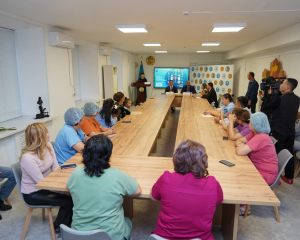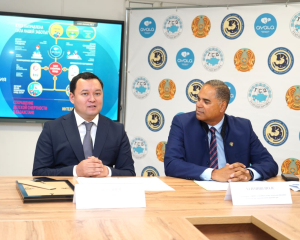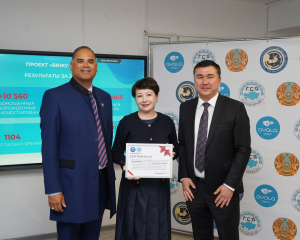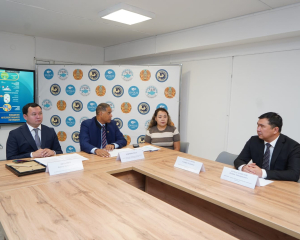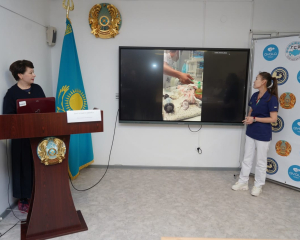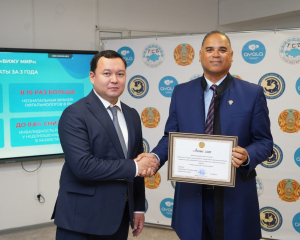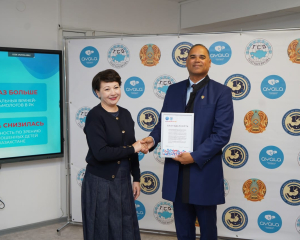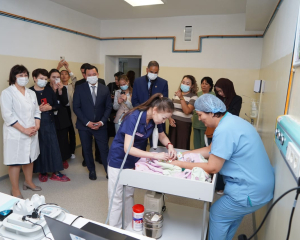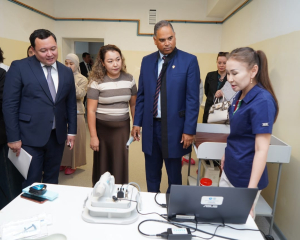IN ATYRAU REGION VISION DISABILITY AMONG NEWBORNS IS DECREASING
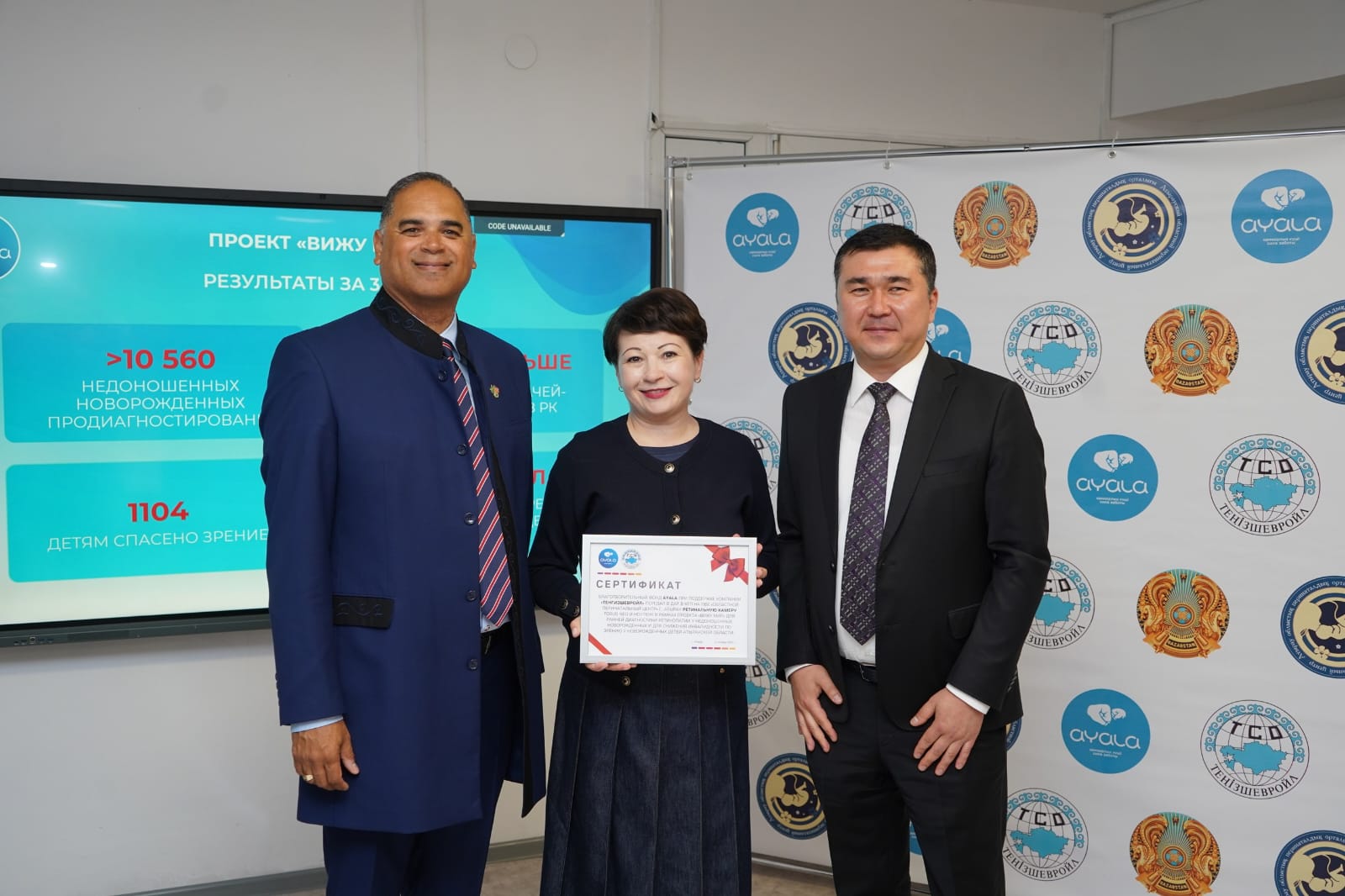
12.10.2024
This was made possible by equipping the Regional Perinatal Centre with special diagnostic equipment. The project was implemented by AYALA Charity Foundation with the support of Tengizchevroil Company. Since the beginning of the year, early ophthalmologic diagnostics has been performed on 65 premature newborns at risk of retinopathy, saving them from irreversible blindness.
Hamish Paul, TCO Deputy General Manager for Government and Public Affairs, said, “Unfortunately, in recent years there has been a trend towards the need for earlier monitoring of children’s health. And we are eager to support projects aimed at preventing diseases. I hope that our collaboration with AYALA Foundation will help hospital doctors reduce the risk of visual disability in newborns and bring hope to many families.”
The Center for Retinopathy of Prematurity began operating at the Regional Perinatal Center in February 2024. Every year thousands of expectant mothers with complicated course of pregnancy come to this medical center from all over the region. All premature deliveries are also performed here, including the transportation of patients by air ambulance from remote district centers of the region.
“We have 9,600 babies born at our center annually, about a thousand are extremely low birth weight premature newborns. For them, undergoing an early ophthalmologic screening means a guaranteed chance to prevent visual disability. The retina develops in the last weeks of pregnancy, so retinopathy is a common visual pathology in premature newborns. We would like to thank Tengizchevroil for their assistance in equipping our Retinopathy Center with a modern retinal camera and other diagnostic tools necessary for ophthalmologist’s work. Now we have everything we need to quickly and accurately diagnose newborns and save their eyesight in the first weeks after birth,” Kazbek Ermagambetov, Director of Atyrau Regional Perinatal Center, noted.
FORUS NEO retinal camera (India) enables an ophthalmologist to diagnose a baby even in intensive care conditions and when a newborn is connected to a neonatal ventilator — which is not possible with other devices. The camera is easy to use and is compatible with a laptop to store all information about infants, photo and video documents of their retinopathy diagnostics. This equipment is successfully operated in nine perinatal centers of Kazakhstan.
“In premature newborns, retinopathy progresses very rapidly. In case of a peracute disease, the doctor has 24 to 72 hours to perform laser photocoagulation of the retina. Unfortunately, these very cases are widespread in Kazakhstan. Our equipment assists the ophthalmologist in the initial diagnosis of this pathology. It also enables parents to see changes in the retina and monitor the outcome during treatment. In addition to a retinal camera, retinoscopes and a set of blepharostats, our Foundation donated to the Regional Perinatal Center 17 vials of the Lucentis preparation, which is also used in the treatment of retinopathy of prematurity. We are delighted to see excellent results in reducing visual disability in premature infants in the Atyrau region already this year,” Aidan Suleimenova, Founder and President of AYALA Charity Foundation, noted.
AYALA Charitable Foundation has been implementing the project “I Can See the World” for three years so far. During this time, the Foundation has helped Kazakhstani ophthalmologists to diagnose more than 10 thousand premature newborns in 22 perinatal and scientific centers of Kazakhstan, having provided them with 31 units of diagnostic and laser surgical equipment, 158 Lucentis vials. AYALA Foundation’s equipment provides screening for 100% of premature infants at risk of retinopathy, and visual disability due to retinopathy in Kazakhstan has decreased to 0.6 percent.
Since 2011, AYALA Foundation has helped to provide four medical institutions in the Atyrau region with equipment of over 64 million tenge to reduce disability in babies and prevent early neonatal death.
